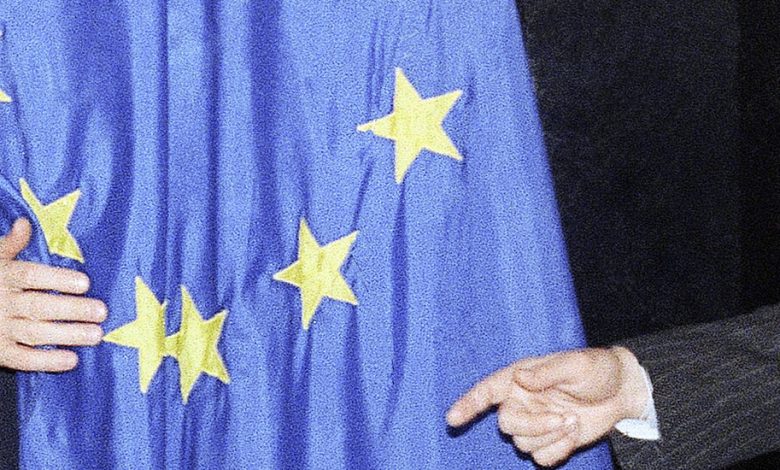Europe Is About to Drown in the River of the Radical Right

Europe is awash with worry. Ahead of parliamentary elections widely expected to deliver gains to the hard right, European leaders can barely conceal their anxiety. In a speech in late April, President Emmanuel Macron of France captured the prevailing mood. After eloquently warning of threats to the continent, he pronounced the need for a newly powerful Europe, a “Europe puissance.”
As I watched the speech, I was reminded of Niccolò Machiavelli’s comments in the opening pages of “The Prince,” the 16th-century philosopher’s seminal treatise on political power. In a dedication to Lorenzo de’ Medici, the ruler of the Florentine Republic, Machiavelli suggested that politics is in many ways like art. Just as landscape painters imaginatively place themselves in the plains to examine the mountains and on top of mountains to study the plains, so too should rulers inhabit their domains. “To know the nature of the people well, one must be a prince,” Machiavelli wrote, “and to know the nature of princes well, one must be of the people.”
Here was a politician grappling with the first part of Machiavelli’s sentence, an officeholder trying to comprehend the lay of the land. What is power in contemporary Europe, and how should it be exercised by the European Union? Mr. Macron answered in princely fashion, showing awareness of both the finite nature of every political community — Europe is “mortal,” he said — and its cyclical vulnerability to crisis. He concluded with a passionate defense of European “civilization” and urged the creation of a paradigm to revive it.
Yet for all his aspirations, Mr. Macron neglected the second half of Machiavelli’s sentence: that people also form views on their rulers, which rulers ignore at their peril. Mr. Macron brushed aside the many Europeans who feel the bloc is aloof and inaccessible, describing their disenchantment as a result of “false arguments.” The dismissal was no aberration. For decades, the leaders of the European Union have overlooked the people in the plains, shutting out the continent’s citizens from any meaningful political participation. This exclusion has changed the contours of the European landscape, paving the way for the radical right.
When Machiavelli reflected on the crises of his time — among them conflicts between major European powers, discontent with public officials and the collapsing legitimacy of the Catholic Church — he turned to the Roman Republic for inspiration. When there is skepticism about values, he wrote, history is our only remaining guide. The secret to Roman freedom, he explained in the “Discourses on Livy,” was neither its good fortune nor its military might. Instead, it lay in the Romans’ ability to mediate the conflict between wealthy elites and the vast majority of people — or as he put it, “i grandi” (the great) and “il popolo” (the people).
While the inherent tendency of the great, Machiavelli argued, is to accumulate wealth and power to rule the rest, the inherent desire of the people is to avoid being at the elites’ mercy. The clash between the groups generally pulled polities in opposite directions. Yet the Roman Republic had institutions, like the tribunate of the plebs, that sought to empower the people and contain the elites. Only by channeling rather than suppressing this conflict, Machiavelli said, could civic freedom be preserved.
